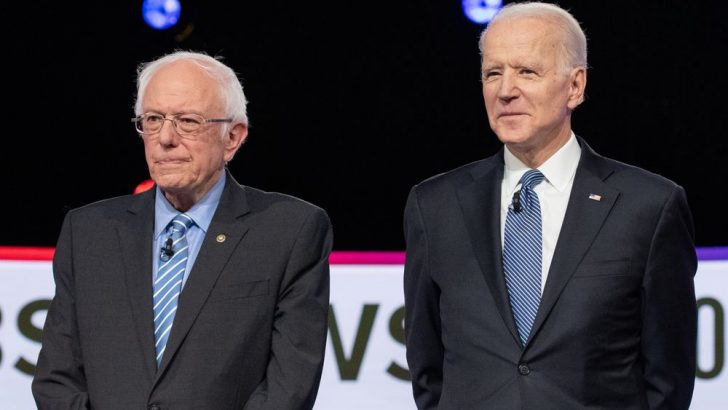Letter from America
Christopher White
One of the more intriguing events that takes place during the US presidential election cycle every four years is the annual Al Smith Memorial Foundation dinner, which has traditionally brought together the leading two contenders with the Archbishop of New York sandwiched in between them, responsible for keeping the peace and attempting to bridge the divides in an increasingly toxic political process.
The white tie affair raises several million dollars for Catholic charitable programs throughout New York and it’s a rare occasion in the heat of the political season for the two candidates to put politics aside for an evening, share a meal, and roast one another for a good cause.
Smith, a four-time governor of New York, was the first Catholic to ever be nominated for the presidency in 1928 – no small feat at a time when anti-Catholic bigotry was part and parcel of American public life. This year’s dinner, set to take place on October 1, is still over half a year away, but as the presidential campaign begins to take shape, it’s instructive to consider how the candidates will intersect with the Catholic Church during what is most likely to be one of the more contentious elections in modern American history.
Popular
As the republican nominee, Catholics already have four years of experience dealing with President Donald Trump. As I wrote in last month’s column, for single-issue pro-life voters, he remains widely popular and with the prospect that he’ll be able to name two to three potential Supreme Court justices and shape the direction of the court for decades, he can easily count on their support.
The same goes with those primarily concerned with religious liberty. For Catholics wanting to ensure that the baker and the candlestick maker will have robust conscience rights protections, they’re likely to ally with the president, if they have concerns over his own personal character flaws.
Such support, however, dwindles when it comes to Latino Catholics – nearly 20 million at the moment and climbing – who have taken serious issues with the president’s hardline on immigration, and in particular, his efforts to end DACA, a program which protects undocumented migrants who entered the country as minors.
In recent years, immigration has been the single issue, which has managed to unite the Catholic bishops in this country – and though their ability to witness in the public square has been severely damaged by the clergy abuse scandals, the fact that the US bishops are now led by a Mexican born immigrant adds further punctuation to the fact that the US hierarchy doesn’t intend to back down on this issue.
On the other side of the aisle, the Democratic contest for the nomination has essentially dwindled into a two-way race between progressive candidate Senator Bernie Sanders and former Vice President Joe Biden as the establishment favourite.
Sanders, who is Jewish, has arguably quoted Pope Francis more than any other candidate in US political life.
In 2016, Sanders met with the Pope while participating in a Vatican conference and since that time, he’s been quick to use his Twitter account to echo the Pope’s messages regarding healthcare and climate change.
Biden can almost certainly count on the full throated support of Nuns on the Bus – socially active religious sisters”
Despite the fact that his wife is Catholic, some Church leaders in his home state of Vermont have told me over the years that he’s not been particularly enthusiastic about partnering with the Church on a local level. On the other hand, Catholic commentators, such as conservative New York Times columnist Ross Douthat, have argued that Sanders’ message of economic populism (which has certainly attracted the support of a number of US Catholics) would result in him steering clear of culture war issues in an attempt to push through the economic reforms that he’s more passionate about, rather than say, focusing on abortion or transgender rights.
Personal loss
As for Biden, should he clinch the nomination, he’ll be the only Catholic candidate in the race – something he’s never been shy about discussing. Throughout his nearly 50 years in public life, Biden has frequently discussed his Catholic Faith – citing it was what has gotten him through tremendous personal loss or the motivation for his support for workers’ rights and expanded access to healthcare.
If he is nominated, however, expect a potential repeat of the Communion debates that dominated the early 2000s as Biden’s support for abortion rights has already prompted one priest to deny him Communion while he was attending Mass while on the campaign trail earlier last year.
Despite such controversies, Biden can almost certainly count on the full throated support of Nuns on the Bus – socially active religious sisters who have toured the country by bus during recent election cycles and have made no efforts to hide their fondness of the former Catholic schoolboy turned politician.
Over the next eight months, there will be inevitable sharp divisions and disagreements between both the politician and potential voters and however the race shapes up and whatever its eventual outcome will be, most Catholics will be a bit like the archbishop during the Al Smith Dinner: often caught in between, expressing occasional agreement and laughter, but with a fair bit of cringing, too.
Christopher White is the national correspondent for Crux and The Tablet newspaper of the diocese of Brooklyn. Follow him on Twitter @CWWhite212.


 Bernie Sanders and Joe Biden
Bernie Sanders and Joe Biden 